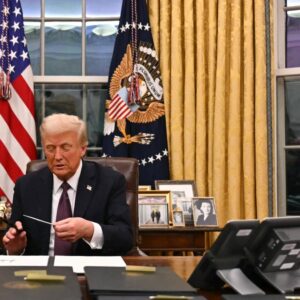Senator John Kennedy (R-LA) battered a DOJ spokesman from pillar to post in a contentious House Judiciary Hearing focused on whether federal judges could block President Trump’s actions via universal injunctions. The courageous senator pointed out the vast web of liberal judges who are abusing the Constitution to undercut President Trump’s authority.
For context, this hearing was held in the run-up to an upcoming Senate Judiciary Committee hearing titled “Rule by District Judges II,” which will be held on April 2, 2025, and is designed to investigate federal judges who have halted Trump’s executive orders with an unprecedented 87 universal injunctions.
Kicking off the exchange, he asked the hapless DOJ official a series of questions. He queried, “A universal injunction is what we call an order from a court enjoining the government in a way that goes beyond the parties to the case but applies nationwide, or in some cases universally, to enjoin the government. Is it sometimes referred to as a nationwide injunction?”
When the DOJ lackey replied in the affirmative, the senator asked about the legal backing for this maneuver. He added, “What’s the statutory basis for a federal judge issuing an order that affects people other than the parties before the court?”
After the spokesman replied that there was no legal basis, Kennedy pivoted to the Supreme Court. The senator said, “What’s the United States Supreme Court opinion, which interprets the Constitution in a way that allows a federal district court judge to do this… Explain to me how this works. How can a federal judge issue an order that affects everybody else, other than those in front of him or her? How is that possible?”
Then, when the DOJ official couldn’t answer the question, the Louisiana Republican explained how this incentivizes liberal activists to seek out federal judges to constrain the president. He added, “Not only does it encourage forum shopping, but also district shopping and filing multiple strategic lawsuits to pick, find one judge that will enjoin a single policy nationwide. If you have five lawsuits, a plaintiff, one of only five cases, must be successful.”






